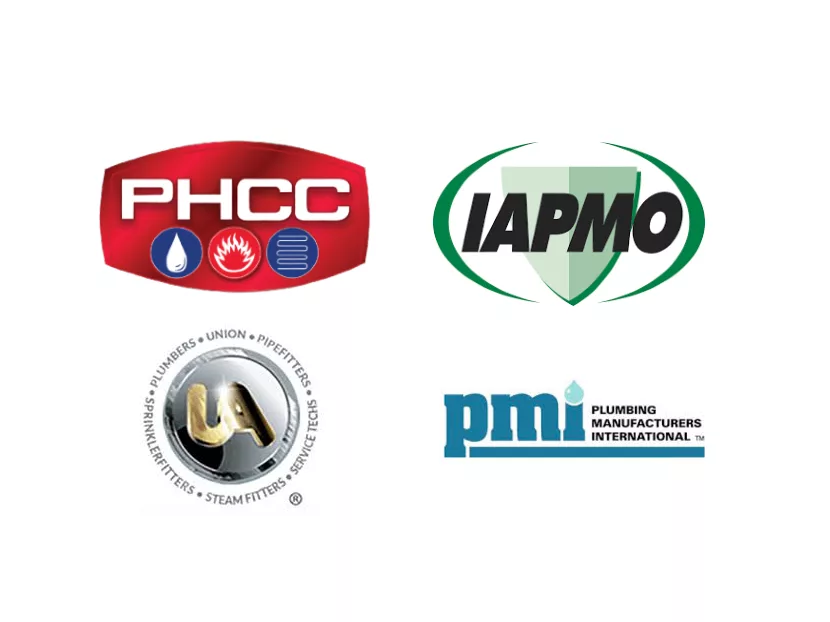The International Association of Plumbing and Mechanical Officials (IAPMO), United Association of Journeymen and Apprentices of the Plumbing and Pipe Fitting Industry of the United States, Canada (UA), Plumbing-Heating-Cooling Contractors — National Association (PHCC), and Plumbing Manufacturers International (PMI) applaud the House of Representatives for bipartisan passage of the National Apprenticeship Act of 2021 (H.R. 447) on Jan. 5 and strongly encourage the Senate to approve it as well. The bill seeks to reauthorize the 1937 National Apprenticeship Act, which established the registered apprenticeship system, for the first time since its inception 84 years ago.
Many characteristics today associated with registered apprenticeships — progressive wage increases, mentorship and safety standards — are not part of the 1937 law; they have instead been included in subsequent U.S. Department of Labor regulations. These provisions and more would be codified into the new federal law, as well as expanding apprenticeship programs through authorization of $400 million to $800 million in new grant funding.
Registered Apprenticeships (RAs) are America's most successful federally authorized workforce development program. According to the Department of Labor, 94 percent of people who complete RAs are employed upon completion, earning an average starting wage above $70,000 annually. The success of the registered apprenticeship system is a product of the strict quality standards, close engagement with industry, and strong worker protections that the programs are required to uphold. All RAs must combine on-the-job learning with related instruction to provide workers a nationally recognized credential from the Department of Labor (DOL) that they can present to potential employers anywhere in the country.
More than 1,200 apprenticeable occupations now exist, from the traditional construction and military occupations to newer sectors such as information technology, finance, and health care. Yet, according to the most recent data, apprenticeships make up only 0.3 percent of the overall workforce in America.
"Apprenticeships are a proven pathway to well-paying employment," said IAPMO CEO Dave Viola. "We applaud the U.S. House of Representatives for passing this important piece of legislation and encourage the Senate to quickly pass it as well. We face increasingly complex water and infrastructure challenges in the United States. The registered apprenticeship program is essential to ensuring that our country has the skilled workforce required to meet these challenges. IAPMO is proud to stand with the UA, PHCC-NA and PMI in celebrating this landmark legislation."
Introduced Jan. 25 by Rep. Robert C. Scott (D-VA), H.R. 447 invests in increasing access to RAs. It codifies and streamlines existing standards that are vital to support RAs and expands the successful RA model to youth apprenticeship and pre-apprenticeship programs. Based on Education and Labor Committee estimates, passage would create more than 1 million apprenticeship opportunities over the next five years.
"The brothers and sisters of the United Association of Union Plumbers & Pipefitters (UA) are the best trained and most highly skilled craftspeople in the world — and that's because of our rigorous training standards and the robust investments we make each year in our Registered Apprenticeship program," said UA General President Mark McManus. "This reauthorization of the National Apprenticeship Act ensures Registered Apprenticeships can reach new industries and that exploitative contractors cannot cut corners. Our members can rest assured that UA apprenticeships will remain the gold standard in the construction industry with the passage of this bill."
By bringing together industry sector leaders and experts, including employers, industry associations, joint labor-management organizations, labor organizations, education and training providers, credential providers, and apprentices, the bill would establish national frameworks for industry-recognized apprenticeable occupations.
"PHCC, as one of the leaders in apprentice education, has recognized the value of apprentice training throughout its 138-year history and welcomes this legislation that reaffirms and streamlines the Registered Apprentice Program," said PHCC National President National President Hunter Botto. "PHCC and the PHCC Educational Foundation will continue their educational efforts utilizing Registered Apprenticeships in furthering their Pledge to America's Workers goal of preparing 75,000 future industry professionals over the next five years. We are grateful for the introduction of this legislation and urge prompt consideration and support of its passage as a signal that apprenticeship can lead to good jobs, with good pay, and a future for advancement."
In addition to strengthening and expanding apprenticeship opportunities nationwide, passage would mitigate efforts across many states that threaten to weaken the plumbing industry through delicensing and/or elimination of plumbing boards.
"Plumbing manufacturers provide skilled, good-paying jobs in communities across America, but the shortage of well trained, skilled workers is real," said PMI CEO Kerry Stackpole. "Our manufacturers produce 90% of all plumbing products sold in the nation. To strengthen America's manufacturing sector, we need to utilize all the tools and resources available to help us attract and train new talent, including apprenticeships. The expanded opportunities to registered apprenticeships, youth apprenticeships, and pre-apprenticeships made available through the National Apprenticeship Act of 2021 will help close the skilled workers gap and shortage of plumbers, create good-paying jobs in our communities, and help aid in our country's economic recovery."
H.R. 447 may be viewed in its entirety at https://www.congress.gov/bill/117th-congress/house-bill/447/text.




